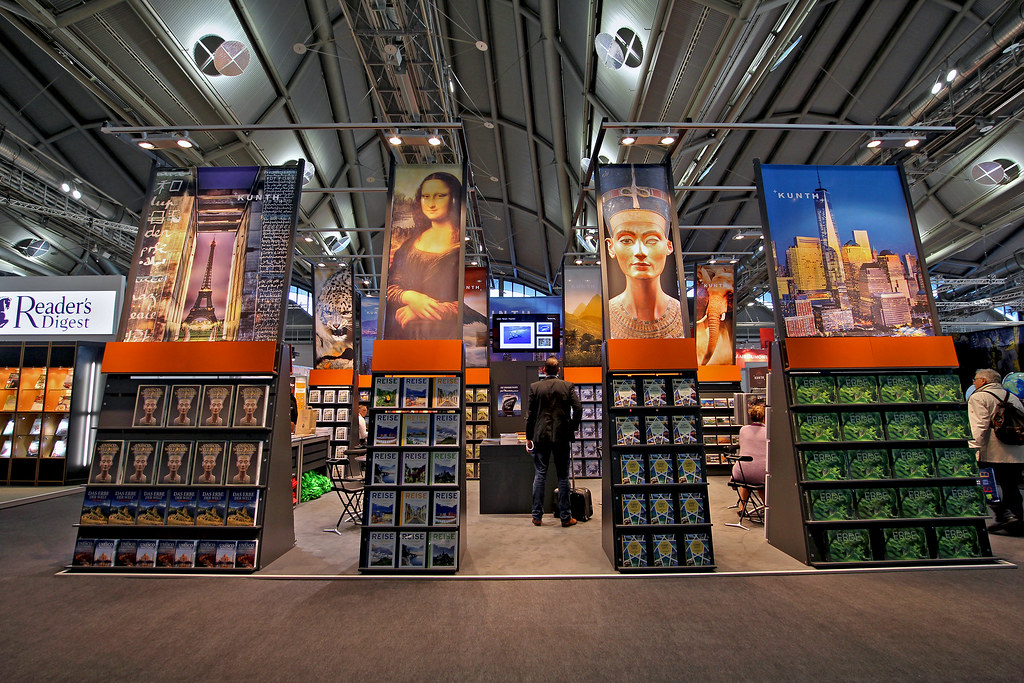After going almost fully digital in 2020 to curb the spread of coronavirus, 2021’s fair will see publishers, booksellers, authors and readers meeting face-to-face again.
But it will be a more muted version of past editions, as uncertainty about travel restrictions has kept many international visitors away.
“Back to business does not mean back to normal,” fair director Juergen Boos said at the opening, but the event nevertheless offered a chance for the industry to “reconnect,” he added.
Award-winning novelist Margaret Atwood, whose native Canada is this event’s guest of honour, dialed into the opening ceremony via Skype to deliver a message of hope.
“COVID[-19] and the climate crisis have shown us how fragile we are as human beings,” she said.
“But we have also been demonstrating how resilient, inventive, and how creative we can be.”
Books have helped people to escape the isolation of the pandemic and make sense of the world, said Atwood, author of The Handmaid’s Tale.
“Books are both time travel devices and empathy machines. They take us to distant lands, allow us inside other worlds,” she added.
Young readers
The fair, which opens to trade visitors on Wednesday before welcoming the general public later in the week, runs until Sunday.
It comes as the book industry has been “doing pretty well over the past 18 months,” according to Boos, with people in many countries using the slower pace of life during lockdown to read more – adolescents especially.
In the US, printed book sales rose by more than 8 percent in 2020 to record their best year in a decade, according to the NPD research group.
Growth was driven by teen categories but also adult non-fiction, as people turned to cookbooks and DIY books to pass the time at home.
In Germany, the European Union’s largest book market, bookstores used the shutdowns to expand their online sales, leading to a 20-percent jump in internet revenues to 2.2 billion euros ($2.5 billion). Audio and e-books also saw double-digit growth.
“The book industry has passed the COVID[-19] stress test,” said Karin Schmidt-Friderichs, chairwoman of the German Publishers and Booksellers Association.
Christmas concerns
But the news for the industry is not all good.
The book trade, with global revenues of around $100 billion annually, is not immune to the shortages of raw materials and supply chain problems disrupting economies as countries rebound from the coronavirus downturn.
With the crucial Christmas holiday season fast approaching, publishers are sounding the alarm about paper shortages, bottlenecks at shipping ports and higher transport costs.
“I fear that this Christmas, people cannot be sure of getting any book they want at short notice,” Jonathan Beck, head of renowned German publishing house C.H. Beck, told the Handelsblatt financial daily.
Books could also become more expensive, he warned.
COVID-19 curbs
This week’s Frankfurt gathering is the latest example of trade fairs stirring back to life, and comes after the German city of Munich welcomed 400,000 visitors to the IAA auto show in September.
Daily visitor numbers are capped at 25,000 however, less than half the usual capacity. Frankfurt fairgoers must also wear masks and show proof of vaccination, recovery from COVID-19 pandemic or a negative test.
More than 2,000 exhibitors from upwards of 80 countries are attending, well below the 7,500 exhibitors from over 100 countries who attended in 2019.
Some 300 authors are coming, including Canada’s Michel Jean, Dany Laferriere and Michael Crummey.
But compared with past years when the likes of Atwood, Ken Follett, Cecelia Ahern and Nicholas Sparks visited, this edition of the event lacks the same star power. Several large publishing houses are also staying away, preferring to take part online instead.
As a result, much of the usual networking and haggling over licensing and translation rights will happen on the fair’s digital platforms.
According to globaltimes.cn. Source of photo: internet















